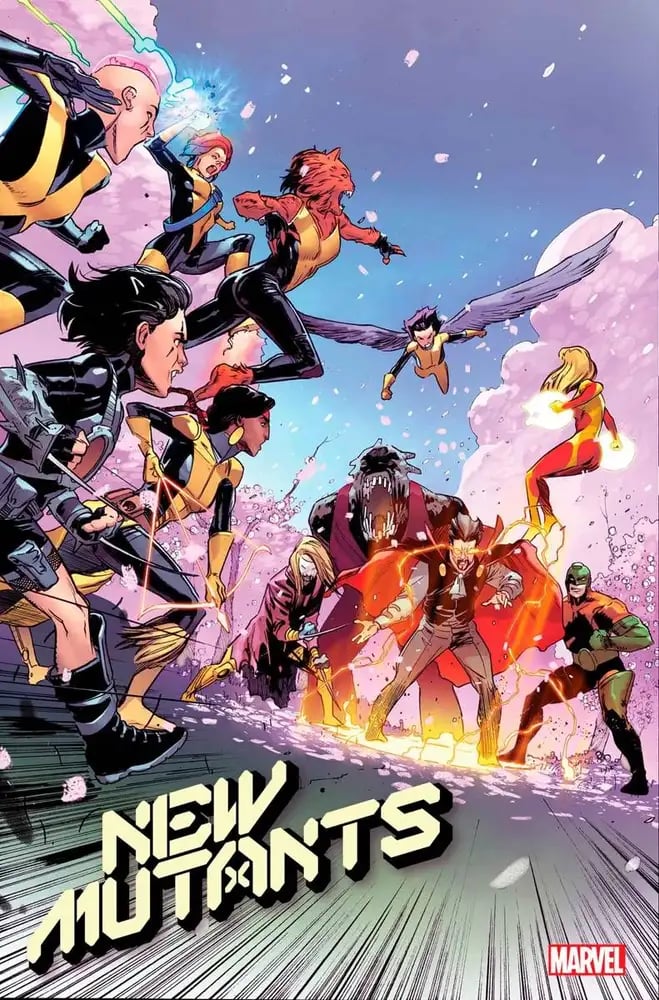"Churn" Might Actually Be a Good Thing for Streaming Services
If you've been reading a lot of coverage of the Streaming Wars [TM] lately, you've probably been hearing about the problem of "churn." Churn, we're told, is a major issue for streaming services, and it's something they're trying to get rid of. But... I'd actually call churn a good thing, and a reasonable way of subscribing to these services.
"Churn" is how the streamers refer to people subscribing for a short time — possibly just a month or two — and then canceling. Even though streaming services claim to hate this behavior, they've been encouraging it in a bunch of ways. And I actually think that "churn" is good for streamers, because it encourages customers to shop around and try all of the services.
As a customer, I feel like there are two ways to approach streaming services right now. Either you sign up for a year in advance, to lock in a discount, or you pay for a month at a time and cancel as soon as you've watched all the shows and movies you were excited to check out. Often, when I sign up for a month of a streaming service, I'll cancel right away, to ensure the payment doesn't auto-renew without me affirmatively deciding to pay for another month.
Basically, there are more streaming services than I can afford to subscribe to right now. And they all have wonderful shows that I want to check out — so the only way to sample all of their content is to bounce from one to the next, subscribing for a month at a time. (Currently there are two streaming services where I've paid for a full year up front.)
And I do think streamers have encouraged customers to flit from service to service like hummingbirds. They have tons of content, but a lot of it is hard to find, and you never quite know from month to month what they'll have in their library. They keep announcing new shows with massive fanfare and then canceling them before they have a chance to gain a loyal audience — and worse yet, they are increasingly removing those shows entirely, so nobody can even watch them*. When shows aren't canceled, new seasons arrive years apart, and streamers have started slowing down the flow of new content. A lot of the choices that streamers are making seem designed to reward customers for showing up for a month at a time, a few times a year, to check out the latest additions and then peace out again.
This hits particularly hard with children's programming. A few years ago, everyone was arguing that kids' shows were essential for keeping streaming customers loyal. Kids would get hooked on a particular show, so parents would keep subscribing to a service to keep their kids happy. This made a lot of sense to me, but now the streaming sites have been taking an axe to their kids' programming in particular.(Pouring one out for Summer Camp Island, The Owl House and Babysitters Club, amazing shows that deserved better.)
The promise of streaming services was that you'd pay a monthly fee for access to a vast library of great shows and movies, but that's never been reliable. Even before streamers started "disappearing" their own high-profile shows, there's long been a market for articles on "what's leaving Netflix this month" on entertainment sites.
And there's a difference between Netflix and Spotify. Spotify has a massive library of old and new music, which it licenses from record labels, so you can pretty much count on getting access to whatever album you're craving. (I am a paying subscriber to Tidal, ever since they started posting exclusive Prince content.) But you don't need to subscribe to five or six services to hear all the music you like, and that music doesn't appear and disappear randomly, as far as I know.
Most content purchasing decisions don't, in fact, require a running subscription: you can buy a book without promising in advance to buy every other book by that author. (Even though sometimes I wish that was a thing!) When I bought Special by Lizzo, I didn't promise to buy every subsequent Lizzo album.
And again: nobody can afford to subscribe to all of the streaming sites right now. So it's actually good for them if customers are able to check them all out, a month at a time.
I get the feeling streaming sites are nostalgic for the days of cable TV, which involved costly hardware and setup, and was actually kind of difficult to cancel. I remember a great feeling of relief when that clunky box was gone from my apartment (along with the TV set it was hooked up to.) But one of the great benefits of this new era is lower barriers to entry and exit.
I vastly prefer the streaming age to the bad old days of overpriced cable, especially when a big chunk of my subscription fee was going to stuff like Fox News and sports channels. But a lot of the fun of subscribing to a streaming service, for me, is signing up, exploring everything that's on there, and then bouncing until it's time to subscribe again in a few months' time. I think this is a perfectly lovely way to support the shows and movies I like, and to broaden my entertainment options.
So streamers should embrace "churn," because it's rational customer behavior, and because it's a way for customers to see what all of them have to offer — instead of just being locked into a few options permanently. Streamers could even market to short-term subscribers: instead of insisting people need to stay forever, maybe try urging them to "come back soon!"
Or if streamers really want more customer loyalty, they could try being more loyal themselves. Like, say, if a customer has saved a show in their "want to watch" folder, maybe the streamer could guarantee that show will be available until you watch it? Even if the show disappears elsewhere, that customer could have privileged access to the show they said they want to watch. They could even send people a message: "Hey, you saved this show in your "my stuff" list, and we're making it go away, but since you reserved it, we'll give you an extra month to watch it." Or something.
* I was a writer on Y: The Last Man, a show which was announced with much fanfare, canceled very quickly, and now is no longer available to view. So this hits home for me personally.
My Stuff
Yay, I'm coming to New York! There are so many people I miss in the Big Apple, who I haven't seen since 2019 in many cases. So if you have time to come to one of my events, I would dearly love to see you.

On Thursday, June 8 at 7 PM, I'm going to be at WORD Bookstore in Brooklyn, 126 Franklin St., celebrating twenty years of Tor Teen with Terry J. Benton-Walker (Blood Debts) and Mark Oshiro (Into the Light). I cannot wait for this conversation. RSVP here.
And then the following weekend, I'm gonna be at the Bronx Book Festival at Fordham University. In particular, on Saturday the 10th., I'll be on a panel, once again with Mark Oshiro and Terry J. Benton-Walker at 2:30 PM called "Flaunt Your Fandom: Celebrating 20 Years of Magic, Mischief, & Marvel." RSVP here.
I'm told that if I can make it there, I'll make it anywhere. So please help me make it there!
ICYMI my entire young adult space fantasy trilogy is complete now! You can get the whole Unstoppable trilogy, and the first two books are in paperback. I feel like these books tell a coherent story about queer chosen family, people searching for their own identities, and fighting fascism without losing yourself. But I wanna hear what you think!
The latest episode of Our Opinions Are Correct, the podcast I co-host with Annalee Newitz, is out now. We talk about our feelings about all the recent wave of Star Trek television. And I got to have a pretty in-depth, lovely conversation with Mike McMahan, creator of Star Trek: Lower Decks.
Also, the fourth issue of New Mutants: Lethal Legion comes out on June 21. As you can tell from the cover, it features an all-out drag-out fight in a cherry orchard, with petals flying everywhere. Also, longtime villain and occasional hero Moonstone does TWO very shocking things. (Cover by the wonderful Javier Fernandez.)
